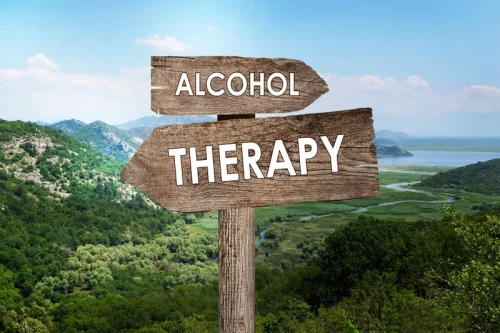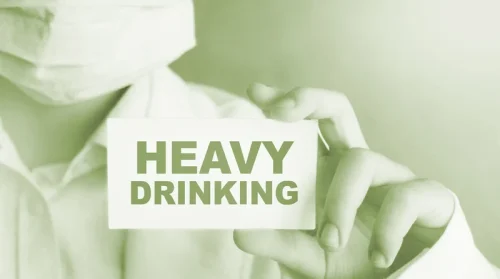
Add into this, says Laura Jarvis, a senior development manager at The Alcohol & Drug Service (ADS), dopamine (known as ‘the happy hormone’) is also at play when we drink and our mood dips the next day. “Alcohol is a psychoactive substance, so it radically changes how we think and feel,” she explains. “Drinking it releases dopamine, which, in turn, can make us want to continue drinking to maintain that feeling.” I realised, one horrid ‘morning after the night before’ that once again I’d made decisions while drunk that I never would while sober – some of which left me shaken and physically bruised when the booze wore off. But while some people may feel that alcohol helps their anxiety, others may feel susceptible to anxiety after a night of drinking.
Mental health is personal.So is our approach to psychiatry.
I asked the experts and I’ve also documented my own journey of going sober for 15 months, before becoming a mindful drinker (I now like the odd glass of wine or a cocktail with dinner sometimes but that’s… pretty much it these days). CBT has taught individuals with generalized anxiety disorder to effectively deal with situations that cause them to feel anxious. In conjunction with traditional treatment, this form of therapy can also help people overcome alcohol use disorders. Long-term heavy drinkers are particularly vulnerable to developing an anxiety disorder, such as post-traumatic stress disorder. Heavy alcohol use can also lead to other mental health disorders, such as antisocial personality disorder and bulimia. The physiological changes that alcohol triggers in your body can result in symptoms that are like a panic attack.
Does Talkiatry take my insurance?
American Addiction Centers (AAC) alcoholism treatment is committed to delivering original, truthful, accurate, unbiased, and medically current information. We strive to create content that is clear, concise, and easy to understand.

Managing anxiety with Talkiatry

Elevated cortisol levels can lead to feelings of anxiety or restlessness. It’s no secret that alcohol has a profound impact on the brain—even a casual drinker can experience a mood shift after a beer or two. It’s also no secret that drinking—especially heavy drinking—can bring on feelings of regret the next day. In addition, if you’re noticing your anxiety levels increasing after drinking, try cutting down on how much you drink.
- While some people are able to drink responsibly and in moderation, others struggle to control their drinking and put themselves at risk of developing addiction and other physical health concerns.
- But despite feeling in control of how much I drink, I still often choose to forgo it (especially on days when I’m already not in a good head space).
- Alcohol use can cause new onset anxiety and worsen pre-existing anxiety symptoms.
- In this case, alcohol can be especially harmful, potentially triggering and exacerbating panic attacks.
Plus, take note of how your mood is each day — if anxiety attack while drunk you’re feeling extra on edge already, try and go against the temptation of remedying that with alcohol. Let’s say you drink a beer and martini but you don’t drink any water in between. Alcohol is a diuretic, meaning it makes you lose water through peeing, so it’s very important to drink plenty of water as well when you’re drinking alcohol. Sleep also comes into play when talking about hangxiety too, says Dr Ari Roxborough from Arrow Health, a rehabilitation centre for addiction.
Health Categories to Explore
Treating one disorder while failing to address the other can worsen the untreated condition and prevent clients from achieving full physical and psychological recovery. Every time you drink, alcohol triggers an increase in the production of insulin. This increase can lead to a drop in your blood sugar (glucose) levels, and when this is too low it is known as hypoglycaemia. The symptoms of low blood glucose include trembling, an elevated heart rate, and feeling anxious or in a low mood. Because genes influence how your body processes alcohol, some people may experience more intense hangover symptoms, such as headaches or dehydration.
- At CalmClinic, we believe that information is only as helpful as its accuracy.
- The symptoms of low blood glucose include trembling, an elevated heart rate, and feeling anxious or in a low mood.
- Furthermore, people with anxiety who have other psychiatric disorders (such as depression) are more likely to reach for alcohol as a coping mechanism, which may also lead to an alcohol use disorder.
How alcohol can cause anxiety and why you shouldn’t treat anxiety with alcohol

Together, this interaction affects your mood, emotions and alertness. This is why when we drink, we often feel more sociable, carefree and willing to let our guard down. Chemical dependency specialist Joseph https://ecosoberhouse.com/ Janesz, PhD, LICDC, says there are various ways that anxiety and alcohol are linked, so it’s important to understand how alcohol affects not only your body, but also your mind. Many college students use alcohol to cope with anxiety caused by tension, chronic worrying, nervousness and trouble sleeping. Another factor might be the influence that being intoxicated has had on your behaviour and actions.
- If you are frequently experiencing panic attacks after drinking alcohol, it is important to take a look at your drinking.
- It is also recommended that you consult your GP if you are concerned that you have a drinking problem.
- In addition, if you’re noticing your anxiety levels increasing after drinking, try cutting down on how much you drink.
- The site connects with consumers to provide them with personalized content that reduces their stress, makes them laugh, and ultimately feel more confident and capable on their healthcare journey.
Alcohol and anxiety: Panic attacks after drinking
Typically, he offers this in conjunction with supportive therapy, motivational interviewing, and/or cognitive behavioral therapy in 30-minute follow-up visits. Occasionally, Dr. Lin may recommend that additional therapy is needed and ask that you bring a therapist into your care team in order to provide the best outcome. If you’re regularly experiencing some or all the symptoms listed above, it’s important to seek professional help immediately.
While some people are able to drink responsibly and in moderation, others struggle to control their drinking and put themselves at risk of developing addiction and other physical health concerns. In other words, alcohol is not all bad – but it does have the potential to damage your psychological and/or physical health. Psychiatrists are doctors who have specialized training in diagnosing and treating complex mental health conditions through medication management. If you are experiencing symptoms of a mental health condition such as depression, anxiety, bipolar disorder, PTSD, or similar, a psychiatrist may be a good place to start.
